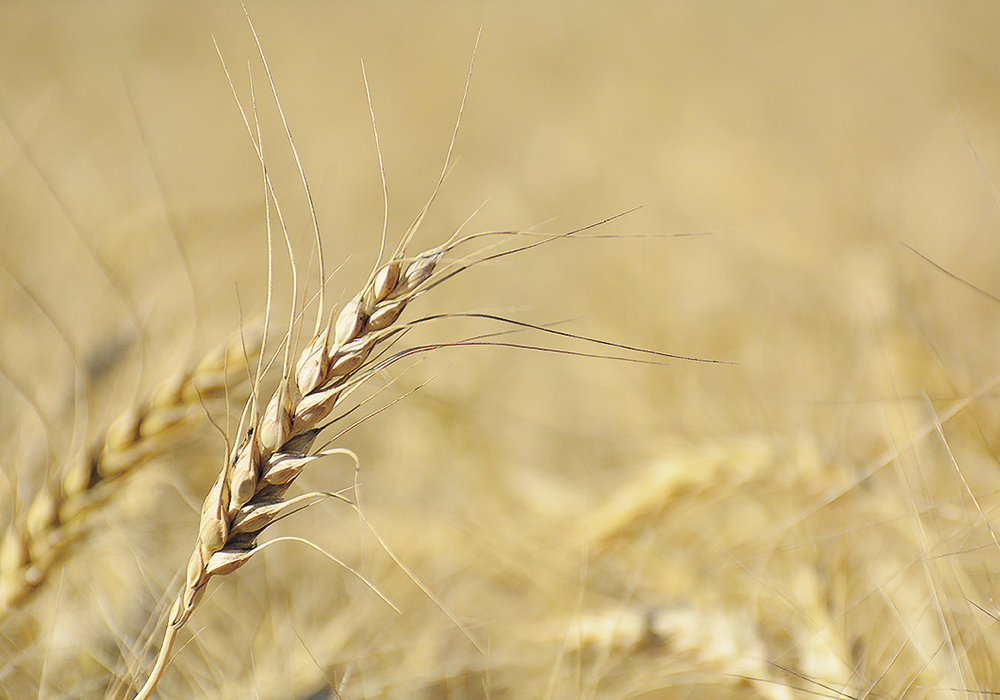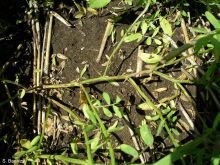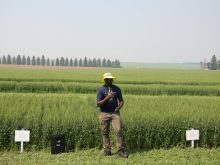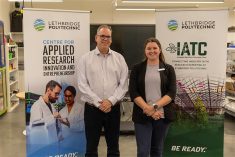Group’s first chair identifies lack of moisture and falling commodity prices as two of grain producers’ biggest challenges
The first chair of Alberta Grains is passionate about Alberta’s wheat and barley growers and the fledgling organization she’s been chosen to lead.
“I take my role incredibly seriously,” said Tara Sawyer, an Acme-area farmer with five years of experience in positions with the former Alberta wheat and barley commissions.
“I don’t take my leadership role lightly, so I put a lot of time, care and thought into what I’m doing. I believe in collaboration. I believe in strong governance. I lead with integrity.”
Read Also
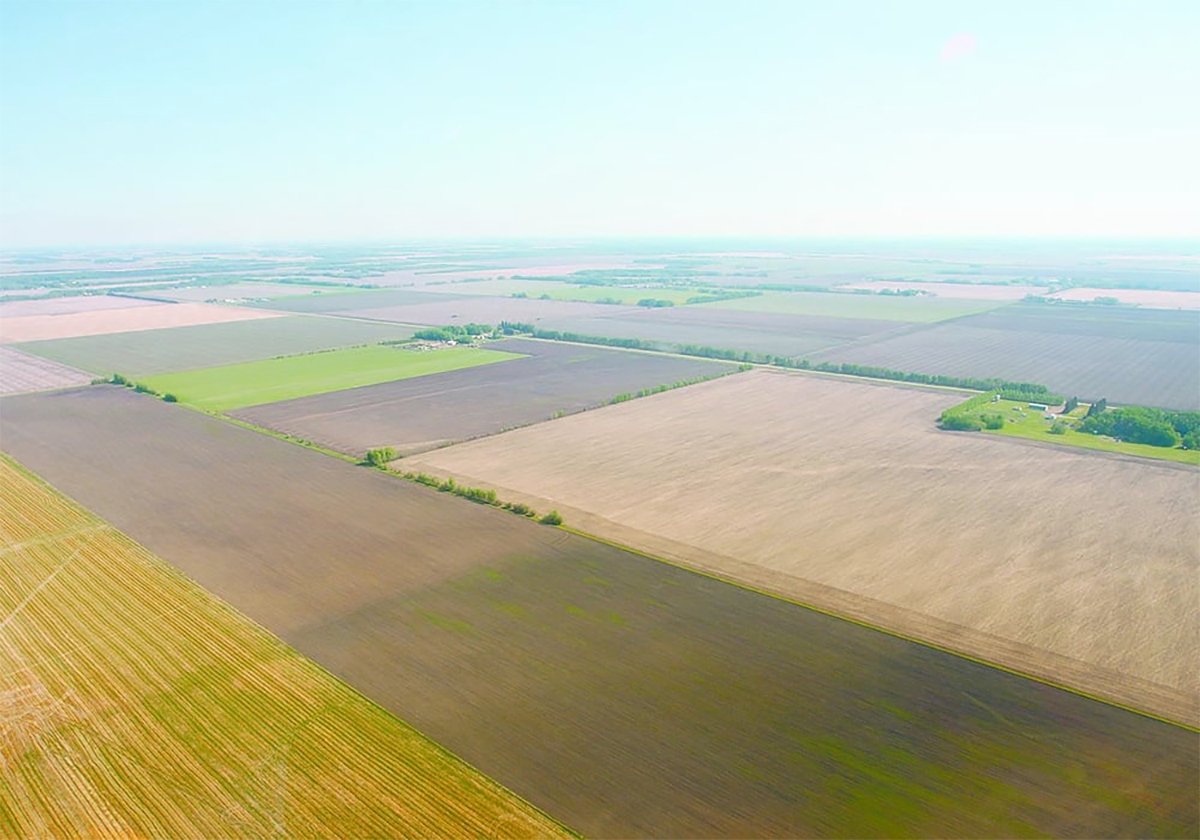
Saskatchewan amends farm land ownership regulations
The Canada Pension Plan Investment Board can no longer own Saskatchewan farmland.
The inaugural board, elected at the Alberta Grains general meeting Jan. 31, also includes Scott Jesperson of Spruce Grove as first vice-chair and Devin Hartzler of Carstairs as second vice-chair.
Sawyer served as chair of Alberta Grains’ interim board of directors since the two commissions formally amalgamated last August. She joined Alberta Wheat and Barley in 2019 and was elected chair of Alberta Barley, a position she kept until the merger.
Sawyer identifies lack of moisture and falling commodity prices as two of the biggest challenges facing grain producers today, although she prefers the term “focus” to “challenge.”
“A lot of us have basically been through three years of drought. We did not get the moisture we needed to see for the majority of the year. So that’s concerning,” she said.
“And we’ve definitely seen a drop in the commodity prices ever since the fall. So those are two big ones.”
The first major initiative of the new board is to develop a strategic plan that will identify Alberta Grains’ business priorities.
“We really want to create a plan for the next one, three, five years, which is going to help our decision-making going forward,” said Sawyer.
Research will be a central focus. Sawyer said it was always a priority for the former commissions and frequently its biggest line item.
“Research is a key part of our organization. Even before we were Alberta Grains, over the past decade we’ve invested over $31 million in research projects.”
The question is what to research. A large number of industry stakeholders, including farmers, agronomists, brewers, independent consultants and researchers, had their say in a survey last fall. Breeding, agronomy and disease resistance were identified at the top.
“When we say breeding, it’s about improving breeding techniques: looking at drought resistant varieties especially. That is not a surprising one to appear on that survey given what the last few years have been.”
Breeding for nitrogen-efficient varieties was another identified goal, as was agronomy.
“That’s integrated pest management, looking at resistant weed management, and harvest and post-harvest management,” said Sawyer. “Disease resistance is always in there.”
Sawyer singled out Alberta Grains’ agronomy and extension department as being on the right track, “especially with what (agronomy and extension director) Jeremy (Boychyn) is doing with his Plot2Farm and some of those other initiatives they’ve targeted.”
Sawyer would like to see more and better farmer engagement in the coming years.
Some producers are reluctant to run for the board, she noted, but that doesn’t mean they can’t keep track of upcoming events on the Alberta Grains website.
“When we have field crop days which Jeremy Boychyn puts on, we’ve seen really good turnout to a lot of them. So we know there’s value there, that there’s farmers who see the value in it and like the idea.”
Perhaps the biggest benefit of farmer engagement is the opportunity to hear what’s on the minds of farmers and the victories and challenges they’re facing.
“We’re very careful, top of mind, when we talk about the check-off dollars and how we use them. How is this going to benefit farmers?” said Sawyer.
“It’s good to hear from farmers on the issues that matter to them that help us in our decisions. That’s why we have a delegate body. That’s why we have regional representation. We’re trying to bridge that gap.
“But if we don’t have people coming out to regional meetings and we’re not hearing from them, it’s not helpful. Over this next year, I’d like to see when our regional meetings come around next fall, we have a larger turnout than we saw this fall.”
Regional directors for Alberta Grains were elected at a series of regional meetings held throughout November 2023. Here are the results.
- Region 1: Dean Hubbard, David Bishop
- Region 2: Devin Hartzler, Tara Sawyer
- Region 3: Stewart Oke, Dick Wymenga
- Region 4: Shawn Jacula, Brent Christensen
- Region 5: Scott Jespersen
- Region 6: Greg Sears, Tasha Alexander
The amalgamation process began in 2017 when the Alberta wheat and barley commissions implemented a shared management structure after formal consultations with the province’s wheat and barley producers.
In October 2022, Alberta wheat and barley farmers voted in favour of combining the commissions.




